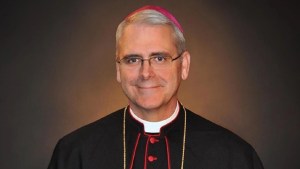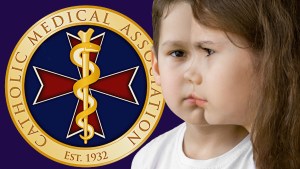It’s no surprise that a Catholic college would issue guidelines expressing its expectations that students, faculty, and staff live public lives according to the moral teachings of the Church. But Franciscan University of Steubenville, Ohio, went a step further, issuing a document that explains those teachings with philosophical and theological background – almost like a papal encyclical.
So in addition to the “rules” of behavior one might expect to read about, Steubenville’s Compendium on Human Sexuality: Male and Female He Created Them goes into depth on the reasons behind them.
It points out, for example, that chastity is intimately tied to charity. Christians are called to lives of charity, the compendium says. And “chastity is the shape charity takes in the sexual realm. It is the virtue that enables all Christians — regardless of their vocation or state in life — to rightly order their sexual desire and make a complete gift of themselves to God and one another.”
“Continuing its commitment to the Catholic Church’s teaching on the human person and human sexuality, Franciscan University of Steubenville recently updated its reference document for staff, faculty, and students summarizing that teaching and reaffirming its fidelity to Church doctrine,” the university announced. The updating came in response to requests from faculty, staff, and students for “guidance on specific questions arising from the confusion about sexuality in today’s culture.”
“As witnessed by those who live it, the Church’s teaching on human sexuality is liberating, lifegiving, and illuminating,” wrote Franciscan University President Father Dave Pivonka, member of the Third Order Regular Franciscans, in a recent letter to the University community. “Franciscan University’s Compendium on Human Sexuality: Male and Female He Created Them summarizes that timeless teaching and presents human sexuality in all its truth, goodness, and beauty.”
In a press release, the university said the 11-page guidelines were a cross-disciplinary initiative that included men and women, faculty and staff, from theology, philosophy, biology, counseling, Student Life, Personal Vocation, Franciscan Life, evangelization, and Human Resources. “In contrast to the online culture of instant gratification that devalues the dignity of the human person, the document highlights the richness and depth found within the Catholic Church’s teaching about human sexuality,” it said. “It also emphasizes the primacy of charity and the inseparability of love and truth.”
Transgenderism
A significant portion of the compendium is devoted to the issue of transgenderism. It distinguishes between the term gender and sex.
“In recent years, this term has increasingly been used in such a way as to presuppose — falsely — that a person can have a more fundamental ‘identity’ having to do with sexuality that is different from his or her biological reality,” the compendium says. “It is then supposed that there are many different types of ‘gender identities’ and that a person’s gender can change, perhaps quite frequently. Such suppositions become incoherent since, separated from a grounding in genuine, biological sexual differences, ‘gender identities’ can have no objective basis for how to distinguish them. Because a human person is a body-soul composite, not a soul or consciousness somehow inhabiting or possessing a body, he or she cannot actually be a woman inside a man’s body, a man inside a woman’s body, a neuter self, a third sex, or so on.”
Thus, “members of the university community should avoid using pronouns or titles of address (e.g., Mr., Ms., etc.) for themselves or others that are inconsistent with a person’s objective sexual identity,” the document says. “Even if intended as an act of charity, agreeing to use so-called ‘preferred pronouns’ or related titles of address — given our present cultural context — indicates approval of another person’s rejection of his or her objective sexual identity, or could easily be taken as approval. Hence, the use of such pronouns provides a negative witness in relation both to the person addressed and to all present or aware of the situation.”
The compendium says that as a prudential matter, when referring to a person’s sexual identity as a man or a woman, Franciscan University avoids the terms “gender” or “gender identity,” “which in our current cultural environment indicate an understanding of human sexuality that is not consistent with Catholic teaching and natural law. Rather, Franciscan University uses the terms ‘sex’ or ‘sexual identity’ to describe a person as a man or a woman, created by God and indicated by a person’s biological constitution.”
“I hope this document allows our Franciscan University community to encounter the beauty of God’s design for the human person,” Father Pivonka wrote. “My desire is that the truth of Catholic teaching helps us better understand one another, care for each other, and ultimately, love one another.”






